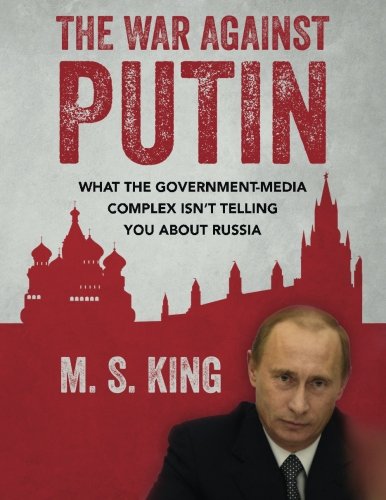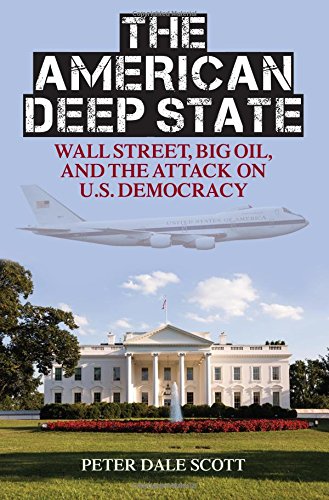Despite the high stakes involved in the confrontation between nuclear-armed Russia and the United States over Ukraine, the U.S. intelligence community has not updated its assessment on a critical turning point of the crisis – the shooting down of Malaysia Airlines Flight 17 – since five days after the crash last July 17, according to the office of the Director of National Intelligence.
On Thursday, when I inquired about arranging a possible briefing on where that U.S. intelligence assessment stands, DNI spokesperson Kathleen Butler sent me the same report that was distributed by the DNI on July 22, 2014, which relied heavily on claims being made about the incident on social media.
So, I sent a follow-up e-mail to Butler saying: “are you telling me that U.S. intelligence has not refined its assessment of what happened to MH-17 since July 22, 2014?”
Her response: “Yes. The assessment is the same.”
I then wrote back: “I don’t mean to be difficult but that’s just not credible. U.S. intelligence has surely refined its assessment of this important event since July 22.”
When she didn’t respond, I sent her some more detailed questions describing leaks that I had received about what some U.S. intelligence analysts have since concluded, as well as what the German intelligence agency, the BND, reported to a parliamentary committee last October, according to Der Spiegel.
 Americau2019s Stolen N...
Best Price: $6.67
Buy New $19.75
(as of 07:55 UTC - Details)
Americau2019s Stolen N...
Best Price: $6.67
Buy New $19.75
(as of 07:55 UTC - Details)
While there are differences in those analyses about who fired the missile, there appears to be agreement that the Russian government did not supply the ethnic Russian rebels in eastern Ukraine with a sophisticated Buk anti-aircraft missile system that the original DNI report identified as the likely weapon used to destroy the commercial airliner killing all 298 people onboard.
Butler replied to my last e-mail late Friday, saying “As you can imagine, I can’t get into details, but can share that the assessment has IC [Intelligence Community] consensus” – apparently still referring to the July 22 report.
 The War Against Putin:...
Best Price: $3.19
Buy New $15.87
(as of 03:10 UTC - Details)
A Lightning Rod
The War Against Putin:...
Best Price: $3.19
Buy New $15.87
(as of 03:10 UTC - Details)
A Lightning Rod
Last July, the MH-17 tragedy quickly became a lightning rod in a storm of anti-Russian propaganda, blaming the deaths personally on Russian President Vladimir Putin and resulting in European and American sanctions against Russia which pushed the crisis in Ukraine to a dangerous new level.
Yet, after getting propaganda mileage out of the tragedy – and after I reported on the growing doubts within the U.S. intelligence community about whether the Russians and the rebels were indeed responsible – the Obama administration went silent.
In other words, after U.S. intelligence analysts had time to review the data from spy satellites and various electronic surveillance, including phone intercepts, the Obama administration didn’t retract its initial rush to judgment – tossing blame on Russia and the rebels – but provided no further elaboration either.
 The American Deep Stat...
Best Price: $27.51
Buy New $83.23
(as of 09:30 UTC - Details)
The American Deep Stat...
Best Price: $27.51
Buy New $83.23
(as of 09:30 UTC - Details)
This strange behavior reinforces the suspicion that the U.S. government possesses information that contradicts its initial rush to judgment, but senior officials don’t want to correct the record because to do so would embarrass them and weaken the value of the tragedy as a propaganda club to pound the Russians.
If the later evidence did bolster the Russia-did-it scenario, it’s hard to imagine why the proof would stay secret – especially since U.S. officials have continued to insinuate that the Russians are guilty. For instance, on March 4, Assistant Secretary of State for European Affairs Victoria Nuland fired a new broadside against Russia when she appeared before the House Foreign Affairs Committee.
 A Pretext for War: 9/1...
Best Price: $1.25
Buy New $6.15
(as of 01:45 UTC - Details)
In her prepared testimony, Nuland slipped in an accusation blaming Russia for the MH-17 disaster, saying: “In eastern Ukraine, Russia and its separatist puppets unleashed unspeakable violence and pillage; MH-17 was shot down.”
A Pretext for War: 9/1...
Best Price: $1.25
Buy New $6.15
(as of 01:45 UTC - Details)
In her prepared testimony, Nuland slipped in an accusation blaming Russia for the MH-17 disaster, saying: “In eastern Ukraine, Russia and its separatist puppets unleashed unspeakable violence and pillage; MH-17 was shot down.”
It’s true that if one parses Nuland’s testimony, she’s not exactly saying the Russians or the ethnic Russian rebels in eastern Ukraine shot down the plane. There is a semi-colon between the “unspeakable violence and pillage” and the passive verb structure “MH-17 was shot down.” But she clearly meant to implicate the Russians and the rebels.
Nuland’s testimony prompted me to submit a query to the State Department asking if she meant to imply that the U.S. government had developed more definitive evidence that the ethnic Russian rebels shot down the plane and that the Russians shared complicity. I received no answer.
I sent a similar request to the CIA and was referred to the DNI, where spokesperson Butler insisted that there had been no refinement in the U.S. intelligence assessment since last July 22.
 Check Amazon for Pricing.
Check Amazon for Pricing.
But that’s just impossible to believe. Indeed, I’ve been told by a source who was briefed by U.S. intelligence analysts that a great deal of new information has been examined since the days immediately after the crash, but that the problem for U.S. policymakers is that the data led at least some analysts to conclude that the plane was shot down by a rogue element of the Ukrainian military, not by the rebels.
Yet, what has remained unclear to me is whether those analysts were part of a consensus or were dissenters within the U.S. intelligence community. But even if there was just dissent over the conclusions, that might explain why the DNI has not updated the initial sketchy report of July 22.
It is protocol within the intelligence community that when an assessment is released, it should include footnotes indicating areas of dissent. But to do that could undermine the initial certitude that Secretary of State John Kerry displayed on Sunday talks shows just days after the crash.





